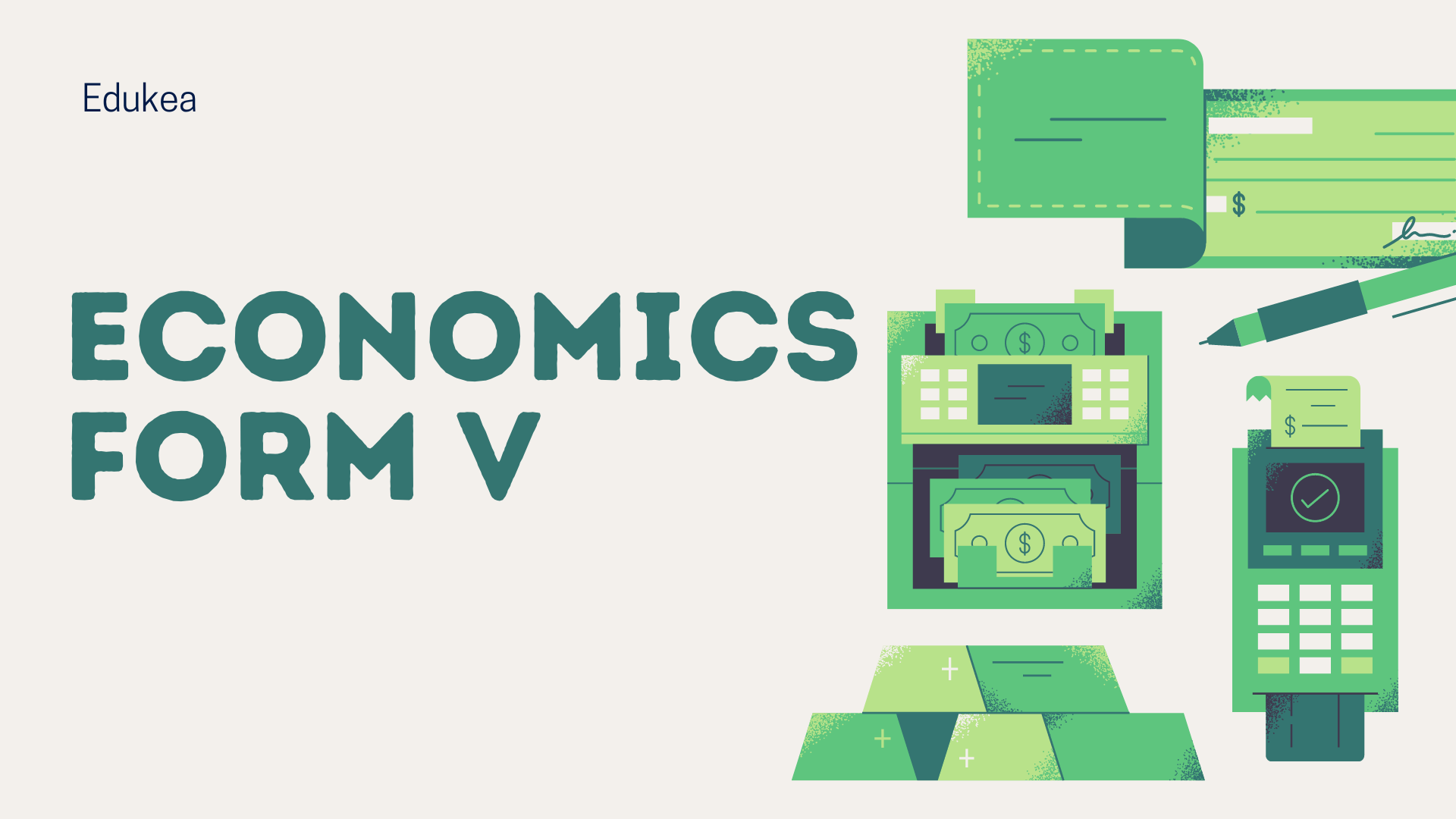The requirements for studying Economics in Form Five include:
-
Basic Understanding of Mathematics: Economics often involves quantitative analysis, so students should have a basic understanding of mathematical concepts such as algebra, graphs, and arithmetic operations.
-
Reading and Analytical Skills: Students should be able to read and comprehend complex texts, economic data, and graphical representations, and analyze them critically to extract relevant information.
-
Critical Thinking Abilities: Students should possess critical thinking skills to evaluate economic theories, policies, and real-world economic issues, and to analyze the implications of economic decisions and actions.
-
Interest in Economic Concepts: A genuine interest in economic concepts, theories, and current events is important for studying Economics effectively and engaging with the subject matter.
-
Writing Skills: Students should be able to express their ideas and analysis clearly and coherently in written form, as Economics often requires writing essays, reports, and analysis papers.
-
Research Skills: Students should have basic research skills to gather and analyze economic data from various sources, including textbooks, journals, government reports, and online databases.
-
Curiosity and Open-mindedness: Students should be curious about economic phenomena and open-minded to different economic perspectives and theories, fostering a willingness to explore and learn new concepts.
-
Time Management and Organization: Economics coursework may involve reading assignments, research projects, and exams, so students should possess good time management and organizational skills to effectively manage their workload and study commitments.
-
Ethical Awareness: Students should demonstrate ethical awareness and integrity in their study of Economics, including respect for diverse economic viewpoints and adherence to academic honesty principles.
By meeting these requirements, students can effectively engage with the study of Economics and develop a solid foundation in economic theory, analysis, and application.
In Form Five, Economics builds upon the foundational concepts introduced in earlier years and delves deeper into the principles of economics, including microeconomics and macroeconomics. Here's an overview of what students typically learn in Economics for Form Five:
-
Microeconomics: Students study the behavior of individual economic agents, such as consumers, producers, and firms. Topics may include:
- Demand and Supply: Understanding the determinants of demand and supply, and how they interact to determine prices and quantities in markets.
- Market Structures: Analyzing different market structures, such as perfect competition, monopoly, oligopoly, and monopolistic competition, and their implications for resource allocation and efficiency.
- Consumer Behavior: Exploring theories of consumer choice, utility maximization, and the factors that influence consumer decisions, including income, preferences, and prices.
- Production and Costs: Examining production functions, cost curves, and profit maximization for firms, and how changes in input prices and technology affect production decisions.
-
Macroeconomics: Students study the economy as a whole, focusing on aggregate variables such as national income, employment, inflation, and economic growth. Topics may include:
- National Income Accounting: Understanding methods of measuring national income, including GDP, GNP, and their components, and analyzing their significance for assessing economic performance.
- Economic Growth and Development: Exploring theories and factors that contribute to long-term economic growth and development, including investment, technological progress, human capital, and government policies.
- Macroeconomic Policy: Analyzing the role of fiscal policy (government spending and taxation) and monetary policy (money supply and interest rates) in stabilizing the economy and promoting full employment and price stability.
- International Economics: Studying international trade, exchange rates, balance of payments, and the effects of globalization on national economies.
-
Economic Systems and Institutions: Students examine different economic systems, such as capitalism, socialism, and mixed economies, and the role of institutions such as markets, governments, and central banks in regulating economic activity and promoting economic welfare.
-
Current Economic Issues: Students analyze contemporary economic issues facing their own country and the global economy, such as unemployment, inflation, income inequality, poverty, environmental sustainability, and the impact of technological change.
Through the study of Economics in Form Five, students develop critical thinking skills, analytical abilities, and a deeper understanding of economic phenomena and their implications for society. They also gain insights into potential career paths in fields such as economics, finance, public policy, and international development.
